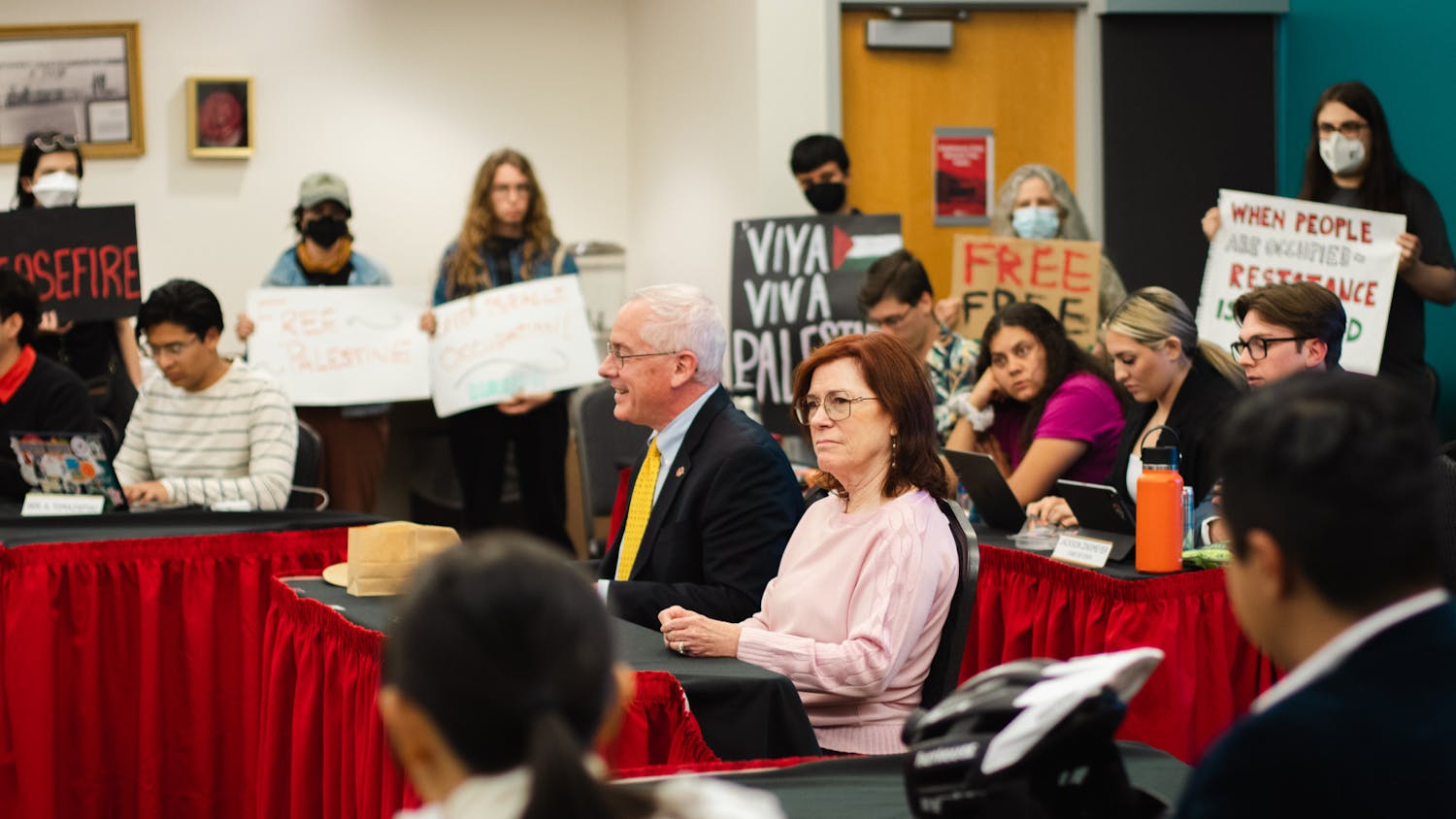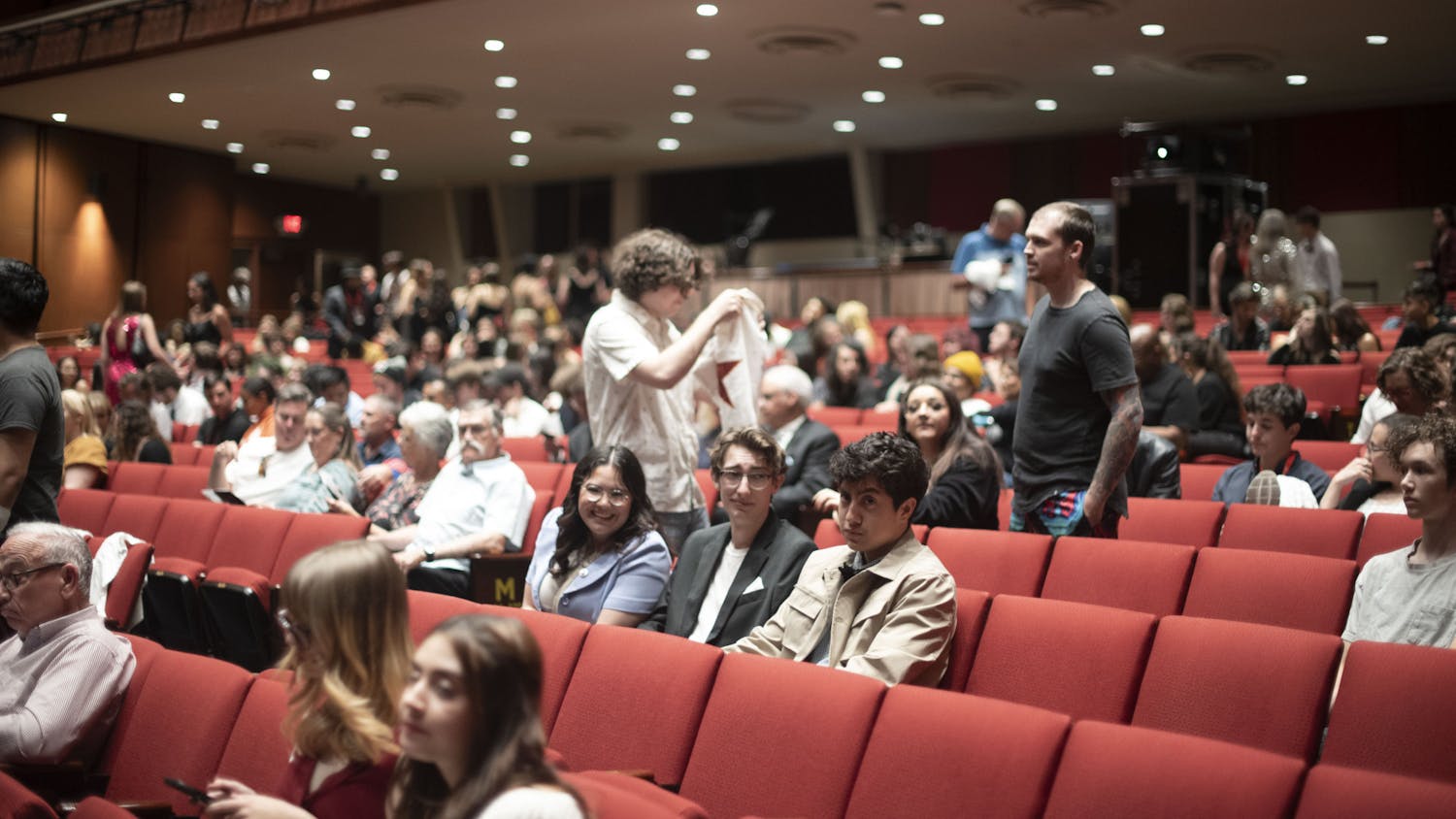opinion@dailylobo.com
Lately, it seems that Ukraine can’t catch a break. The recent Russian invasion of the Crimean peninsula is merely the latest trial added to that country’s tribulations, which include a month of widespread clashes between the now-defunct pro-Russian government and the pro-European Union opposition.
As of this writing, Russia has seized control of Crimea with 16,000 troops, along with several ships and aircraft, and is actively fomenting pro-Russian rebellions in the region. Crimea’s local government and Ukraine’s naval head declared allegiance to Russia in complete defiance of the new government in Kiev.
The present Crimean crisis began last Thursday, when Russian troops conducting military exercises near the border crossed over and seized government buildings in Crimea, Russian planes landed at Ukrainian airports in the region and deployed troops, and Russian ships moved into position to block Ukrainian naval units.
So, what exactly should we expect from this? Something along the lines of 2008’s South Ossetia war? Something similar to the 1968 Soviet invasion of Czechoslovakia? Or a violent East vs. West conflict as was anticipated during the Cold War days of NATO and the Warsaw Pact?
Short answer: definitely not the last one, and instead probably a mix of the first two.
Basically, what Russian president Vladimir Putin has going for him is that Crimea has been historically primed to return to Russia for decades. It was part of Russia in one form or another from the 1850s until 1954, when it was transferred to the Ukrainian Soviet Socialist Republic. It became part of Ukraine after the Soviet Union’s collapse. Today it contains an ethnic Russian majority.
It’s also the location of Sevastopol, home of Russia’s Black Sea Fleet for the past century, housed in a naval base Ukraine has leased to Russia through the 2040s. It was also once romanticized as the summer vacation spot of the Tsars and of the Soviet and East German elite.
Given all of this history, the Cold War-type conflict idea quickly falls flat — Russia is doing plenty well already in Crimea without having to start a full-scale conflict. Putin knows this, hence his fueling pro-Russian rebellions and letting the ethnic Russians in Ukraine do the work for him with a little help here and there from Russian forces.
Also, it’s no secret that Putin has long been manipulating the Ukrainian government into pro-Russian positions. This was most famously seen in the events that drove the late 2004 Orange Revolution, which began with public outrage over a fixed presidential election in which Putin-backed Viktor Yanukovych won over the popularly-supported Viktor Yushchenko.
Ironically, Yanukovych was fairly elected to the nation’s presidency in 2010. However, Putin’s attempts to control Ukraine have once again fallen flat, since the opposition drove Yanukovych and his ilk from office after a month of unrest. Now, Putin must count on local governments to refuse to recognize the new Kiev government and give Russia’s military actions legitimacy. So far, that seems to be bearing out in his favor.
One way to read things is that Putin is playing Ukraine like it’s Warsaw Pact-era Czechoslovakia: he’s marching in with troops just as the Soviets did in 1968 to prevent political liberalization against Moscow’s wishes.
Get content from The Daily Lobo delivered to your inbox
Aside from Ukraine being a nominally independent country, the other major difference here from 1968 is that there’s no need for a sweeping invasion when Putin can waltz in and claim he’s simply coming to the aid of ethnic Russians who revolted on their own because they wanted to secede from the political and economic basket case that is Ukraine.
Indeed, Putin has already claimed that his aim is not to annex Crimea, but to come to the aid of trapped ethnic Russians who are jeopardized by Ukraine’s ongoing unrest. All he needs is a pretext — perhaps a false-flag operation giving the appearance of Ukrainian military executing ethnic Russians — to change “aiding ethnic Russians in trouble” to “regaining Crimea for their sake.”
At this point, many people should also be reminded of Russia’s actions in Georgia in 2008, when it attempted to assure the independence of South Ossetia, an area of Georgia that had fought several wars of secession with Georgia before. However, the long history of Crimea and Russia, along with the large presence of ethnic Russians, makes this different. If such a pretext as the aforementioned happened to occur, Putin would not want an independent puppet state on the peninsula; he would want the peninsula.
It appears to be a perfect storm for Putin. Russian forces for all intents and purposes have operational control of the peninsula and can crush any Ukrainian military attempts to regain it. Ethnically-Russian Ukrainians are actively aiding Russian forces, and public figures such as the head of Crimea’s local government and the head of Ukraine’s navy have declared allegiance to Russia. Also, Crimea has long been part of the Russian cultural consciousness, and it can be argued that many Russians would enjoy seeing it becoming part of their country again.
Finally, Putin can most certainly count out military action from the West. The U.S. has already stated it is committed to using economic and trade sanctions to cause Russia to back down, and NATO and the EU are under no obligation to help Ukraine. One would also imagine that those two groups also wouldn’t be too enthused about taking on the Russian military with no U.S. support.
All Putin has to worry about, aside from declining international perception and some unrest at home, is the fact that his military action is causing Russia’s economy to take a hit. However, Putin may decide that these are all acceptable losses when presented with the major propaganda victories of regaining Crimea, proving that NATO and the EU are weak and proving that no one fears or listens to the U.S. anymore.
Considering all of this, the most likely outcome here is that Russia will grab the Crimean peninsula and stop short of a full invasion of Ukraine. History, military might, popular support, a weakened Ukraine and Western unwillingness for direct military intervention all seem to be working in Putin’s favor.





